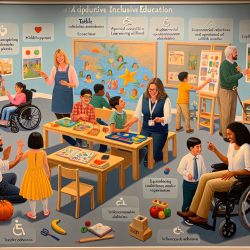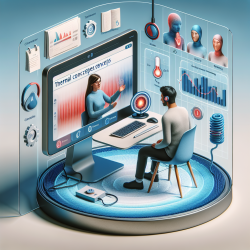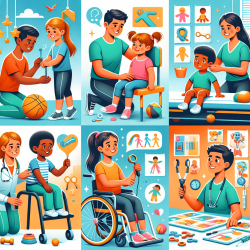Music education has long been recognized as a powerful tool for fostering various developmental skills in children, particularly those with autism spectrum disorder (ASD). A recent study titled Behavioral Training of High-Functioning Autistic Children by Music Education of Occupational Therapy highlights the significant impact of music on high-functioning autistic children. This blog will delve into the key findings of this research and offer practical recommendations for practitioners looking to improve their skills or encourage further research in this field.
Key Findings from the Research
The study observed seven high-functioning autistic children participating in music classes and analyzed the changes in their behavior and skills. The key findings include:
- Improvement in joint attention, movement imitation, rhythm imitation, and cooperation abilities.
- Enhanced ability to sit comfortably, increased awareness, improved musical ability, and better rule-following behavior.
- Reduction in inappropriate behaviors and negative emotions.
Practical Recommendations for Practitioners
Based on the findings, here are some actionable steps practitioners can take to implement music education effectively:
1. Structured Music Activities
Incorporate structured music activities that focus on specific skills such as joint attention and movement imitation. Use instruments like African drums and sound blocks to engage children and promote coordination.
2. Gradual Task Progression
Gradually increase the complexity of tasks to avoid frustration and ensure that children experience success. Start with simple tasks and progressively introduce more challenging activities.
3. Use Familiar and Enjoyable Songs
Choose songs that are familiar and enjoyable for the children. This can increase their engagement and willingness to participate. Songs in major keys are generally more uplifting and can positively influence the children's mood.
4. Emphasize Cooperation and Social Skills
Design activities that require cooperation and turn-taking. This helps children develop social skills and understand the importance of working together to achieve a common goal.
5. Monitor and Adjust
Regularly monitor the children's progress and adjust the activities as needed. Flexibility is crucial to cater to the varying needs and abilities of each child.
Encouraging Further Research
While the study provides valuable insights, it also highlights the need for further research to validate the findings and explore additional strategies. Practitioners are encouraged to contribute to this growing field by conducting their own studies and sharing their experiences.
To read the original research paper, please follow this link: Behavioral Training of High-Functioning Autistic Children by Music Education of Occupational Therapy.










